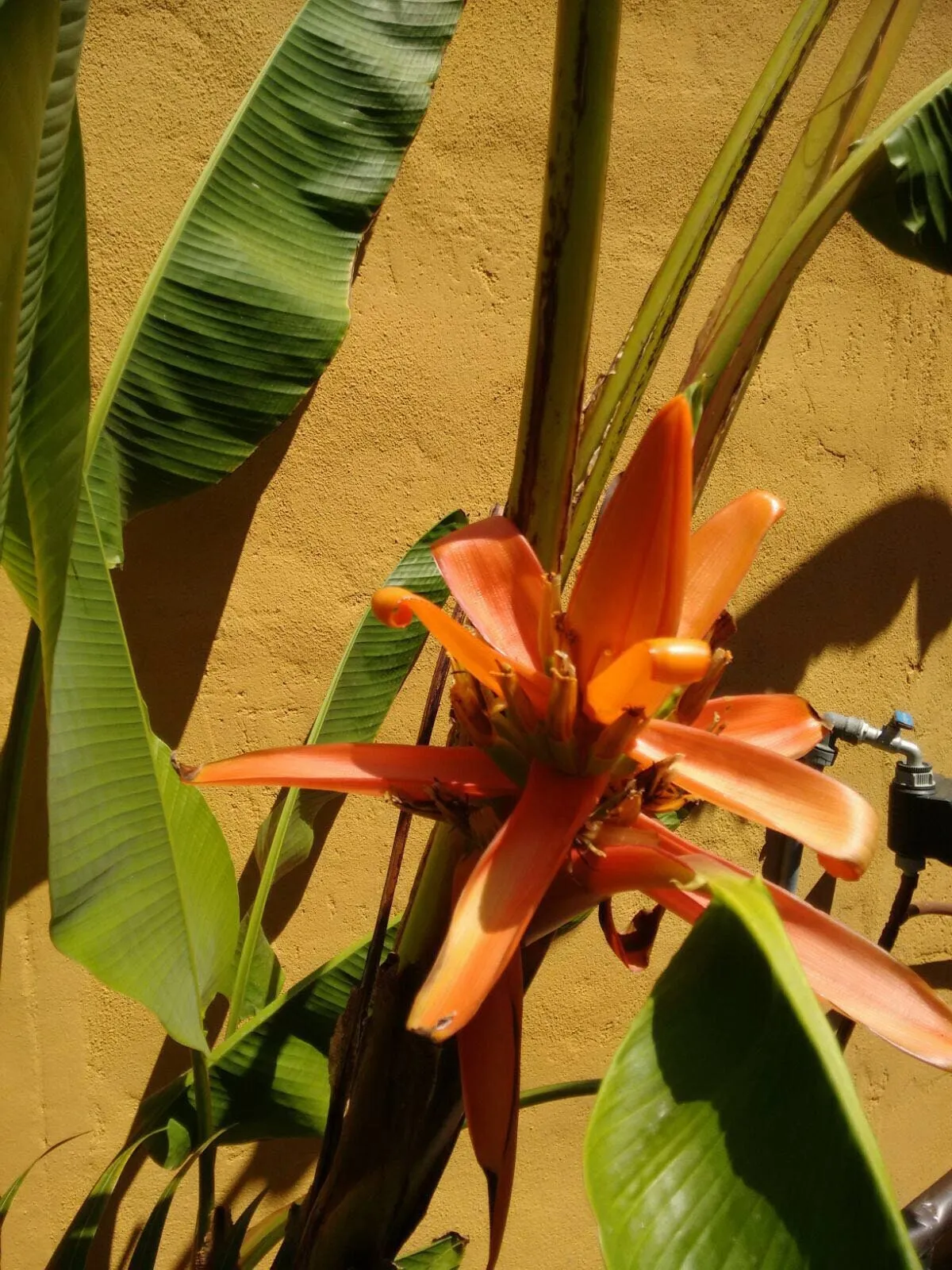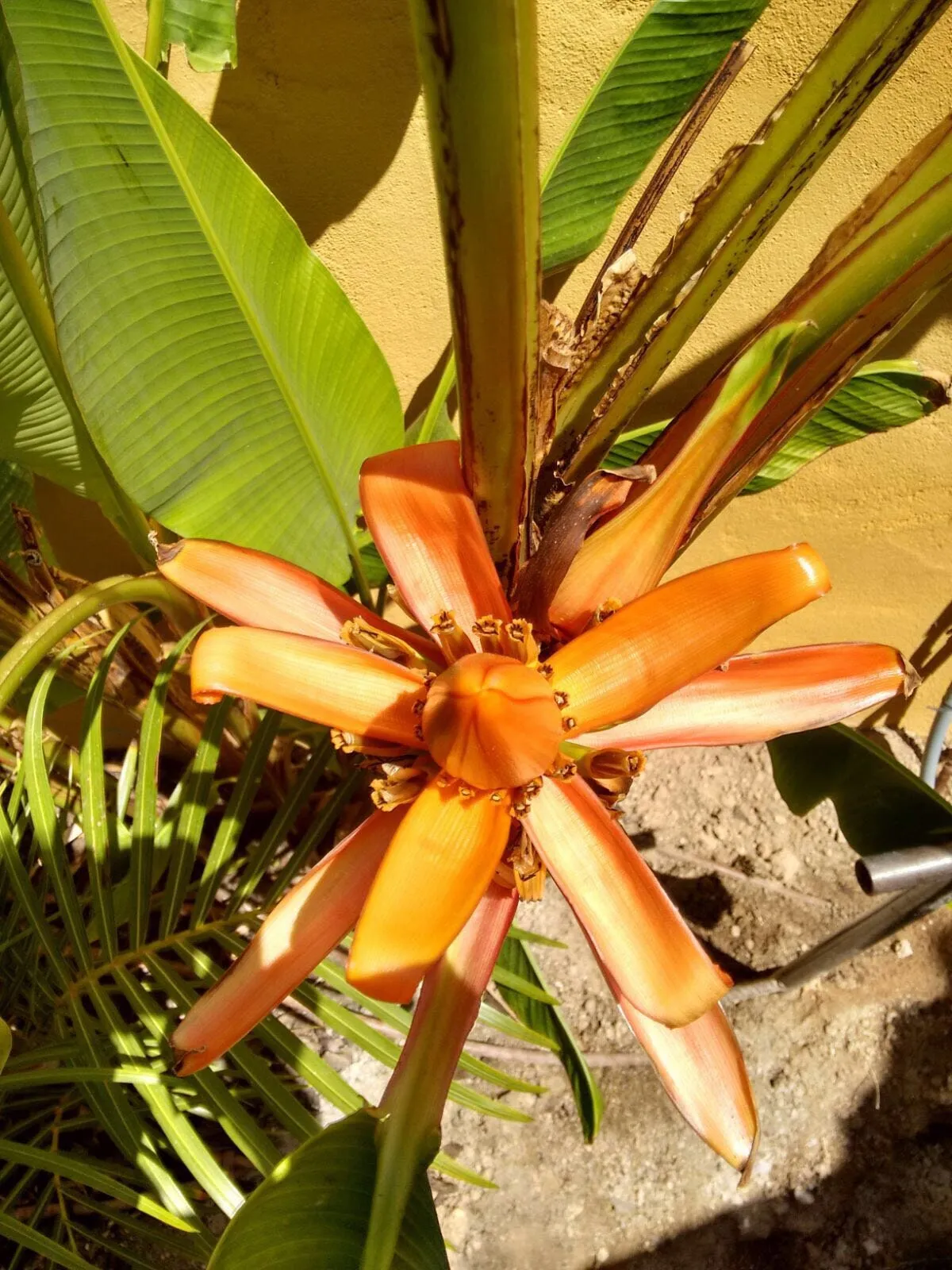Musa aurantiaca is a species of wild banana that is native to Tibet, Arunachal Pradesh, the Assam region and Burma. It has upright inflorescences with an orange stem and orange bracts. Fruits are small, edible bananas. It is grown as an ornamental plant.
Growing Instructions
Pre-germination Treatment (Stratification): Soak the seeds in warm water for a day or two. This can help soften the seed coat and improve germination rates.
Seed Planting:
Fill seedling pots or containers with a well-draining potting soil mix. Plant the seeds about 1/4 to 1/2 inch deep in the soil.
You can plant multiple seeds in each pot, as not all seeds may germinate.
Moisture and Humidity:
Musa acuminata seeds require a consistently warm and humid environment for germination. You can create a mini greenhouse effect by covering the pots with clear plastic wrap or using a transparent plastic dome.
Mist the soil surface with water using a spray bottle to keep it consistently moist but not waterlogged.
Germination:
Place the pots in a warm location with indirect light. A temperature of around 75-85°F (24-29°C) is ideal for germination.
Germination may take several weeks to a couple of months. Be patient and keep monitoring the pots.
Transplanting:
Once the seedlings have grown a few inches tall and have developed a few leaves, they can be transplanted into larger pots with well-draining soil.
Maintain a warm and humid environment as the seedlings continue to grow.
Caring for Seedlings:
Provide bright, indirect light. Avoid direct sunlight, as it can scorch the young seedlings.
Keep the soil consistently moist, but not waterlogged.
Fertilize the seedlings with a balanced, diluted liquid fertilizer according to the manufacturer's instructions.
Harden Off and Planting Outdoors:
When the seedlings are strong and well-established, gradually acclimate them to outdoor conditions. This process is known as "hardening off."
Once the seedlings are acclimated, they can be planted outdoors in a sunny location with well-draining soil.
















